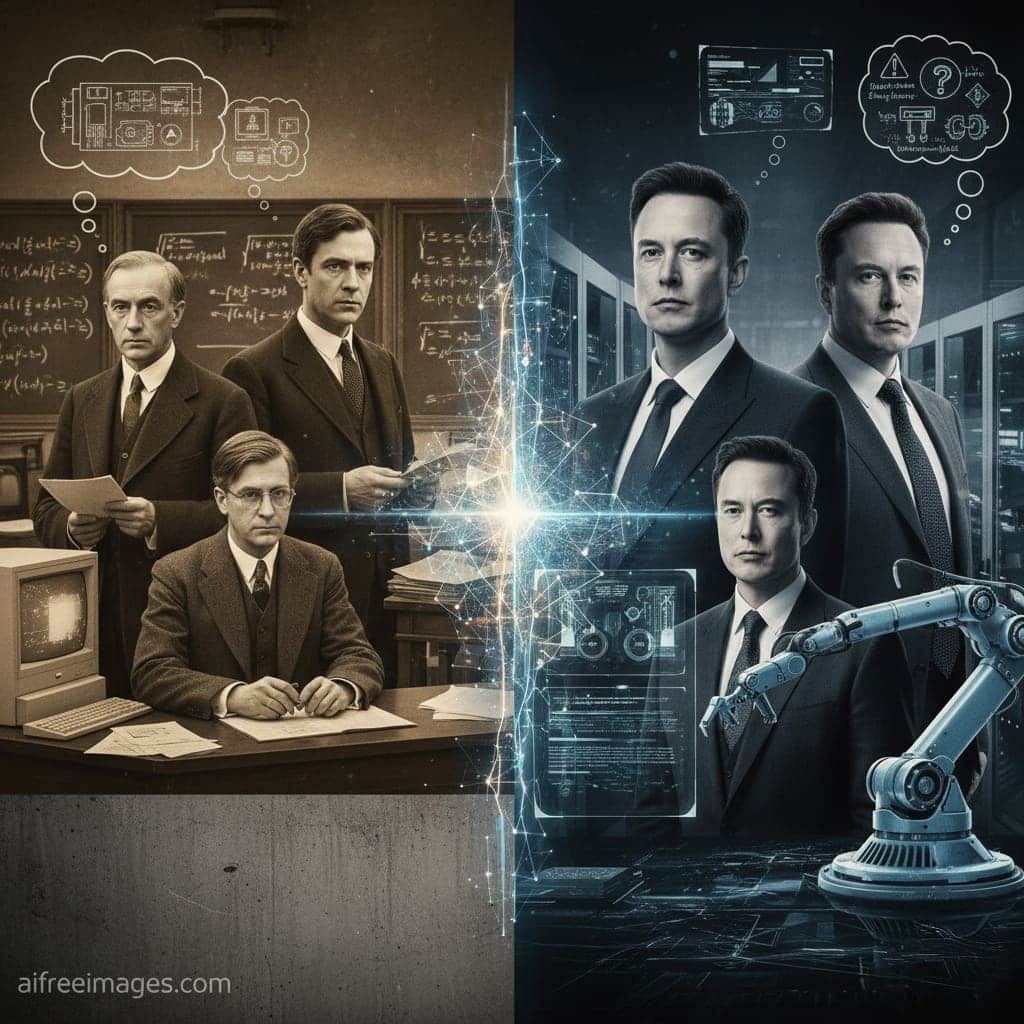Artificial intelligence (AI) has become the driving force behind the digital transformation of the 21st century. However, before it was the technology powering virtual assistants, medical diagnoses, or generative models capable of writing, drawing, and programming, it was an academic research field led by three scientists now known as the godfathers of AI: Geoffrey Hinton, Yoshua Bengio, and Yann LeCun.
Their work on deep neural networks, awarded the Turing Prize in 2018 — considered the “Nobel of Computing” — laid the foundation for deep learning, the core of current advancements. But far from being just researchers, today they also serve as critical voices and, at times, diverging opinions on how AI should evolve and the risks it poses to humanity.
Geoffrey Hinton: the concerned pioneer
British-Canadian, Hinton was the one who demonstrated that deep neural networks could be effectively trained using the backpropagation technique. His work paved the way for systems like ChatGPT or MidJourney to exist today.
After a decade at Google, Hinton surprised everyone in 2023 by leaving the company to speak freely about the dangers of AI. His warnings are becoming increasingly forceful:
- Predicts mass unemployment due to the replacement of human labor.
- capitalism as a driving force behind technological inequality.
- existential, because the loss of work purpose can lead to a loss of human dignity.
For Hinton, AI can be “incredibly good or incredibly bad,” depending on how its deployment is managed.
Yoshua Bengio: the advocate for ethics and regulation
Professor at the University of Montreal, Bengio is considered the most humanist of the three godfathers. His research on generative models and deep learning has been essential for the development of AI systems capable of creating text, images, or voice.
In recent years, Bengio has focused his discourse on AI ethics and the need for international regulation.
- advanced language models could be used for military purposes or disinformation.
- transparency and independent auditing of large technology companies.
- aligned with democratic values and centered on human well-being.
For Bengio, the greatest risk is not only automation but also the possibility of losing control over increasingly complex systems.
Yann LeCun: the optimistic rebel
Born in France and currently Chief AI Scientist at Meta, LeCun is the most optimistic of the three. Recognized as the father of convolutional networks, fundamental in image recognition, he argues that AI will be a tool for unprecedented progress.
LeCun sometimes holds views in opposition to his colleagues Hinton and Bengio:
- early phase, with models far from achieving general intelligence.
His outlook clashes with catastrophic warning signs but reflects the tension even among those who made this revolution possible.
Three visions, one legacy
The godfathers of AI embody both the hope and the uncertainty surrounding this technology. Hinton warns about a future without labor dignity; Bengio demands clear and ethical rules; LeCun trusts that progress will be positive if responsibly managed.
What unites them is the recognition that AI is not just a technical issue but a social, economic, and political phenomenon that will shape the lives of entire generations.
Their scientific legacy is already undeniable. The big question is whether their warnings — and differences — will be heard in time by governments, companies, and societies before AI stops being a promise and becomes an uncontrollable challenge.

